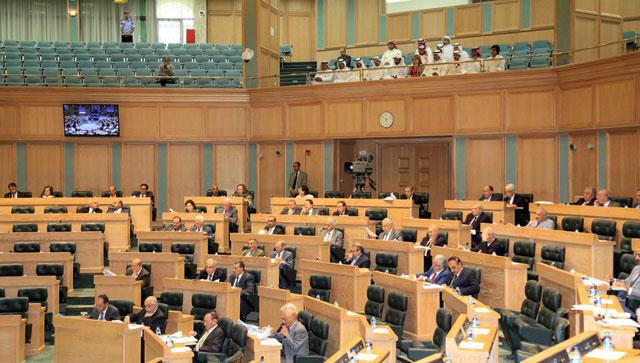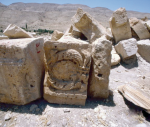You are here
Proposed investment fund should be independent, focus on mega-projects — economists
By Laila Azzeh - Nov 21,2015 - Last updated at Nov 21,2015
AMMAN — The core structure and requirements for establishing a national investment fund, which was recently proposed by His Majesty King Abdullah, were the highlight of a seminar that brought together officials and economists.
In his Speech from the Throne, delivered at the opening of the 17th Parliament’s third ordinary session last Sunday, King Abdullah called on the government to present draft legislation that stipulates the establishment of an investment fund.
“This fund should attract investments from banks, Arab sovereign wealth funds, private sector enterprises and individuals, targeting national developmental and pioneering projects that yield benefits to the national economy as well as those contributing to the fund,” His Majesty said.
Participants at a round-table discussion organised by Al Rai Centre for Studies last Thursday praised the idea of establishing such a fund to push the Kingdom’s development process forward.
However, they underscored that the fund should enjoy certain qualities in order to achieve its mission, namely independence and the ability to operate according to untraditional and new methods, contrary to other funds functioning in Jordan.
“The fund is supposed to focus on very huge ventures; therefore, managing it in a similar manner as other investment funds in Jordan simply will not work. It should be directed in an untraditional way and attract extraordinary expertise,” Jordan Investment Commission President Montaser Oklah said.
Economist Mufleh Aqel agreed, noting that the projected fund has to leverage its resources in order to succeed, and it should only include new and large industrial projects and profitable infrastructure ventures.
“All over the world, investment funds focus on very profitable large investments — not small- and medium-sized enterprises — and enjoy preferential tax treatment,” he said.
Amman Chamber of Industry Chairman Senator Ziad Homsi suggested exempting the fund from income tax, particularly during the first years of its work, and including it in the Investment Law.
Participants at the meeting agreed that the fund should operate with a capital of $200 million at least operate in order to create substantial added value for the country.
Omar Razzaz, chairman of Jordan Ahli Bank and the Jordan Strategy Forum, said countries have found their answer to funding gaps in sovereign investment funds, citing the independence of such facilities as the key behind their success.
“The role of the government in the projected investment fund should be in setting regulations,” he said.
The nature of the government’s role in the fund was an issue of controversy among speakers, with some saying that it should be supervisory through an advisory committee, while others argued that it should be fully independent from the government.
Central Bank of Jordan Deputy Governor Maher Sheikh Hassan underscored the need to look at other countries’ experience in managing investment funds.
“It is no secret that Gulf countries have been hesitant to invest in Jordan over the past few years. Even in their time of prosperity, they used to invest in real estate or be part of projects run by the government,” he said.
“This means that in order to attract new investments, we need to lean on new strategies. I suggest benefiting from Singapore and India’s experiences in this field,” Sheikh Hassan added.
Minister of Planning and International Cooperation Imad Fakhoury agreed, saying that the fund should be designed according to the trends and desires of investors.
“We cannot replicate sovereign funds like the ones in Sweden or the UAE, because they have the resources and their goals are different from ours. We have to look at funds like Temasek in Singapore, for instance,” he noted.
The fund, the minister said, should invest using very large capital, for the type of investments it will be involved in are huge, such as railway projects and power generation from nuclear energy.
“Again, the fund should be independent from the government, but it should put the seed capital,” Fakhoury added.
He noted that the draft law will be presented to the Lower House as soon as possible to ensure that it would be operational by the start of next year.
For his part, economist Jawad Anani stressed the need for the government to have a role in the fund to give it a political obligation.
“The government should have a stakeholder role in the fund, not a governing one,” the senator said.
Related Articles
AMMAN — A ministerial team is currently working on the economic and legal details that will govern the core structure of the national invest
AMMAN — The Lower House on Sunday referred the draft investment fund law for 2016 to its Economy and Investment Committee for review amid re
AMMAN — Parliament will go into recess as of Sunday May 15 after a Royal Decree was issued on Thursday dissolving the current ordinary sessi

















